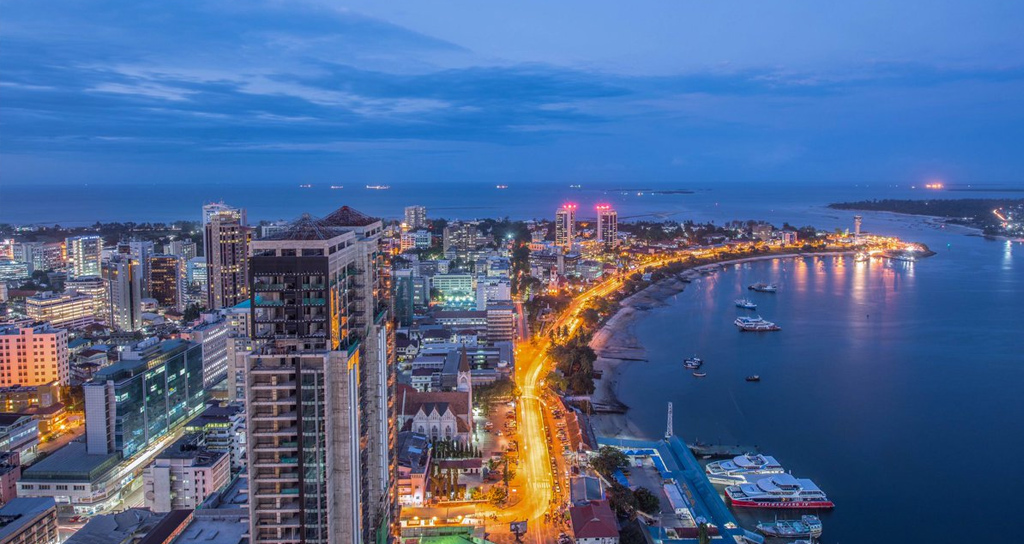YOUR INVESTMENT GUIDE TO TANZANIA
Latest News

Requirements needed to get work permit in Tanzania

How to Establish a Foreign Company Branch in Tanzania?

How to Establish a Local Company in Tanzania as a Foreigner
Get In Touch
How Can We Help?
If you need any help, please
feel free to contact us.
+255 763 666 993
info@tanbizlink.co.tz

Tanzania Country Overview
In 1964, the sovereign republics of Zanzibar and Tanganyika merged to form the United Republic of Tanzania. Tanzania covers 947,300 square kilometers, with 54,337 square kilometers of inland water. Pemba Island is 984 km2 in size, while Zanzibar Island is 1,657 km2. Tanzania is one of East Africa’s five countries, located south of the equator.
Tanzania’s mainland is sandwiched between the Tanganyika region, the Victoria and Nyasa Great Lakes, and the Indian Ocean. It is bordered by eight countries: Uganda, Burundi, Kenya, Rwanda, Zambia, Malawi, the Democratic Republic of the Congo, and Mozambique. It has a coastline of about 1,400 kilometers. Tanzania gives natural access to the region because six of these countries are landlocked.
Tanzania’s GDP increased at an average of 6.4 percent each year from 2006 to 2014.
This is a fantastic track record for growth. It has consistently placed among the world’s top 20 fastest-growing economies, outpacing the Sub-Saharan African average of 5.2 percent. Overall, the picture hints to a bright future, with per capita income rising at a rate of 7% on average, increasing consumption. The trade imbalance notifies potential investors that the European Union (EU), the United States of America, and South Africa, to name a few, all have significant potential to explore and utilize existing duty-free market opportunities. Over a ten-year period, exports increased by nearly 90%, while imports increased by 70%.
POPULATION
STRATEGIC LOCATION
Tanzania's domestic production capabilities, fueled by abundant natural resources such as extensive arable land and mineral riches, make it a natural center for goods movement.
REGIONAL INTERGRATION
The East African Community (EAC) is an international organization made up of five republics: Rwanda, Kenya, Uganda, Burundi, and Tanzania.
The EAC was founded in 1967, disbanded in 1977, and resurrected on July 7, 2000. In 2008, the EAC approved an expanded free trade area encompassing all three organizations' member nations, following negotiations with the Common Market for Eastern and Southern Africa (COMESA) and the Southern Africa Development Community (SADC). In 2015, the EAC had a population of 145.5 million people and a gross domestic output (GDP) of US$ 147.5 billion.
The East African Community (EAC) is an international organization made up of five republics: Rwanda, Kenya, Uganda, Burundi, and Tanzania. The EAC was founded in 1967, disbanded in 1977, and resurrected on July 7, 2000. In 2008, the EAC approved an expanded free trade area encompassing all three organizations' member nations, following negotiations with the Common Market for Eastern and Southern Africa (COMESA) and the Southern Africa Development Community (SADC). In 2015, the EAC had a population of 145.5 million people and a gross domestic output (GDP) of US$ 147.5 billion.
TANZANIA FOREIGN POLICY
ECONOMIC OUTLOOK
POLITICAL SITUATION
These political advances, notably the pluralistic political climate, have ushered in a new era of democratization, with greater freedom of speech, movement, and involvement in decision-making. Since 1992, the country has hosted five multiparty general elections, the most recent of which was held peacefully in 2015 and included more than five political parties. Tanzania has received a peace dividend as a result of its political stability, which continues to establish the groundwork for the country's good economic success
LEGAL SYSTEM AND JUDICIAL INDEPENDENCE
Labor, Land, Commercial, and Corruption and Economic Crimes are the four specialty departments within the High Courts. The Labor, Land, Corruption and Economic Crimes, and Corruption and Economic Crimes divisions have exclusive authority over their respective topics, although the Commercial division does not. In commercial issues involving monetary amounts of up to TZS 50 million ($22,442) and TZS 300 million ($134,650), the District and Resident Magistrate Courts have original jurisdiction. For cases worth more than that, the High Court has original jurisdiction.
PROTECTION OF PROPERTY RIGHTS
Foreign investors can also form joint ventures with Tanzanians, in which the Tanzanian gives land for the foreign investor (but retains ownership, i.e., the leasehold). The URT is currently working to grow TIC's land bank and upgrade its land titling and registration system, thanks to a newly established land bank compensation fund.
INTELLECTUAL PROPERTY RIGHTS
Patents and trademarks are registered on a first-in-time, first-in-right basis, therefore businesses should apply for trademark and patent protection as soon as possible. It is the obligation of the rights holders to register, protect, and enforce their rights, with their own attorneys and consultants, where applicable.
CAPITAL MARKETS AND PORTFOLIO INVESTMENT
MONEY AND BANKING SYSTEMS
FOREIGN EXCHANGE AND REMITTANCES
LABOUR POLICIES AND PRACTICES
Mainland Tanzania's minimum wage is divided into 12 categories, each of which covers a different job sector. The minimum salary for agricultural laborers is Tsh 100,000 ($45) per month, whereas laborers in the mineral sector earn Tsh 400,000 ($180) per month (companies with mining and prospecting licenses).
COMBATING CORRUPTION
Bribing someone or accepting a bribe is illegal in Tanzania. President Magufuli, who took office in November 2015, has continued to advocate for the enforcement of anti-corruption laws, regulations, and penalties. This has influenced public discourse about the current climate of impunity, and some officials are reportedly more hesitant to engage openly in corruption.





